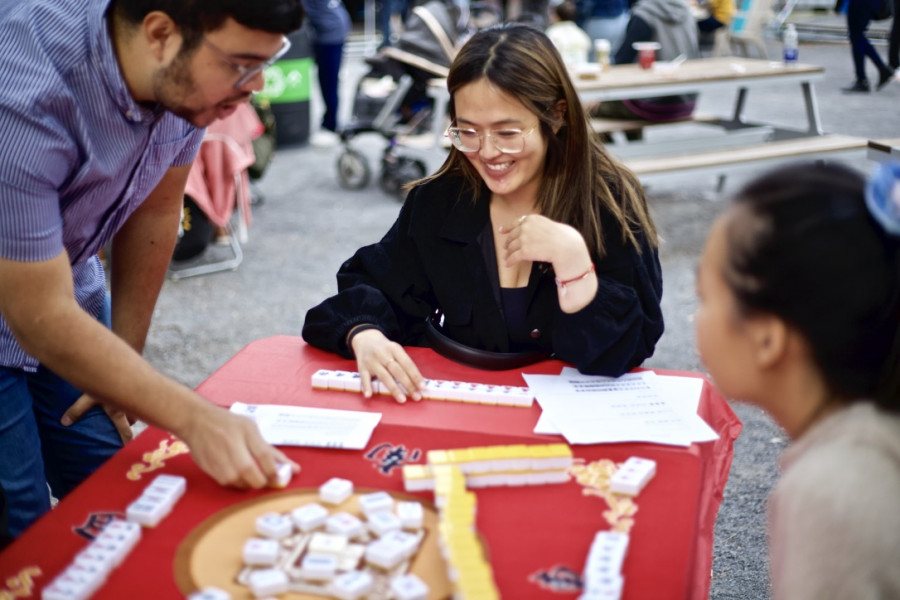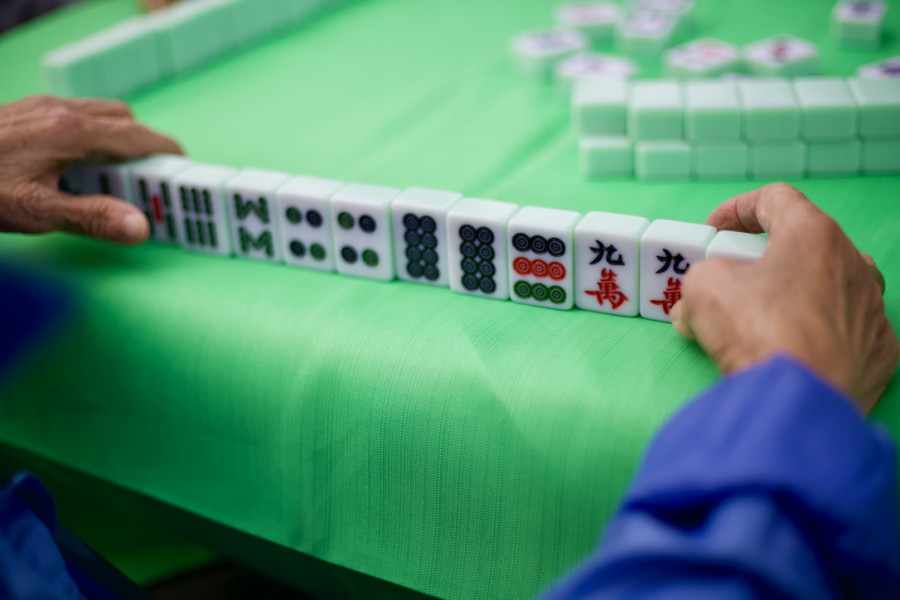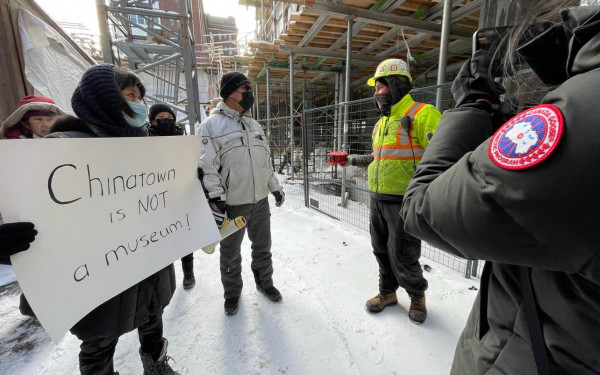Marché Asiatique’s First Mahjong Night: For and By the Community
A Traditional Game Brings Generations Together
Located at the intersection of René-Lévesque Blvd. W. and St. Laurent Blvd., Marché Asiatique opens its doors every Thursday and Friday from 4 p.m. to 10 p.m. and from noon to 10 p.m. on the weekend.
Inside the market, over a dozen merchants positioned their colourful kiosks in a wide circle. On Sept. 17, tables and a stage were set up around a tree at the centre of the marketplace. People sat down at the tables and Mahjong Night began.
“Mahjong is a lot of practice,” said Winston Chan, co-head of Marché Asiatique’s cultural programming. “It’s like learning chess or cards, it comes as you play.”
Mahjong is a game that can be traced back to almost two centuries ago, near the end of the Qing dynasty. The 144 tiles of the game are heavy and polished, each displaying a delicate engraving that indicates the tile’s role in the game. As they get discarded by the players, the loud sound of the tiles clashing against one another nearly drowns out the music and laughter of those playing.
Nowadays, it is a game the younger generation of Montreal’s Chinese community associates with their grand-parents.Chan explained that this is a pastime which can teach more than what meets the eyes. “It reminds [people] of their grand-parents, to seek/pursue your identity, your culture,” he said.
The event drew in people from all backgrounds. From one merchant kiosk to the next, families and friends conversing in French, English, Cantonese and Spanish among other languages could be heard. Cantopop music was played by Parker Mah, a photographer and DJ who gave a festive atmosphere to the marketplace.

Marché Asiatique provides a chance for many to find this connection with their surrounding community. “I just want everyone to join us,” said Serena Liu as she stood behind an array of colourful handmade tufted coasters. “During the pandemic, everybody was bored. We need something to occupy our time.”
Traditionally, mahjong requires its four players to be sitting around a square table. This setup inadvertently favours discussion—and gossiping—among the players and those watching the game. This pastime is popular among the Taishanese and Cantonese diaspora and is consequently played in most countries across the globe.
“It started off as a need to run away from gentrification in Chinatown and the police brutality that goes on [with] the unhoused people who live in the Chinatown area,” said Maka, founder of the Instagram account mychinatownmtl and organizer of the Mahjong Night. “It’s important for our generation to have our voices heard—especially those who don’t have a way to express their feelings.”
Montreal’s Chinatown has recently witnessed the closure of the local YMCA in 2019 due to the “soaring costs in the construction industry,” according to Global News. This has left its local residents with little means to gather and foster a sense of community, especially throughout the pandemic.
“There are conversations to be had, [but] there’s definitely no [dedicated] space for us to talk about [the issues that affect our community] besides online,” continued Maka. “I think mahjong is a great way to [congregate] and to talk to people about certain issues.”
Maka explained that community events like Mahjong Night can lead to a greater anti-gentrification push, as it previously did in Toronto, and is now very motivated to pursue the organization of more community-based events.

Marché Asiatique focused on community approval before starting the project. “We did door-to-door for all 200 merchants over an entire month,” said Chan. They wanted the project to be for the community and to include those involved in some way with the market—either due to their physical proximity or their presence at the event itself. The project is now celebrating its fifth year, and will remain open to all until the end of its season on Oct. 2.
“I still don’t know how to play [mahjong], despite organizing this event,” confessed Maka with a chuckle. “This is what’s beautiful about this game: generations have played just before [us]. Earlier tonight, there were three generations of a family just playing together. They were just like ‘you brought this to us’.”
The organizers of both Marché Asiatique and Mahjong Night hope to see more events like this one in the near future. However, it all depends on the financing they receive. With colder temperatures ahead of us, community events will need to be hosted in an indoors space, enhancing the need for financing, explained Chan. It would provide a space for people to get together and play, while openly sharing their daily experiences without judgment.







